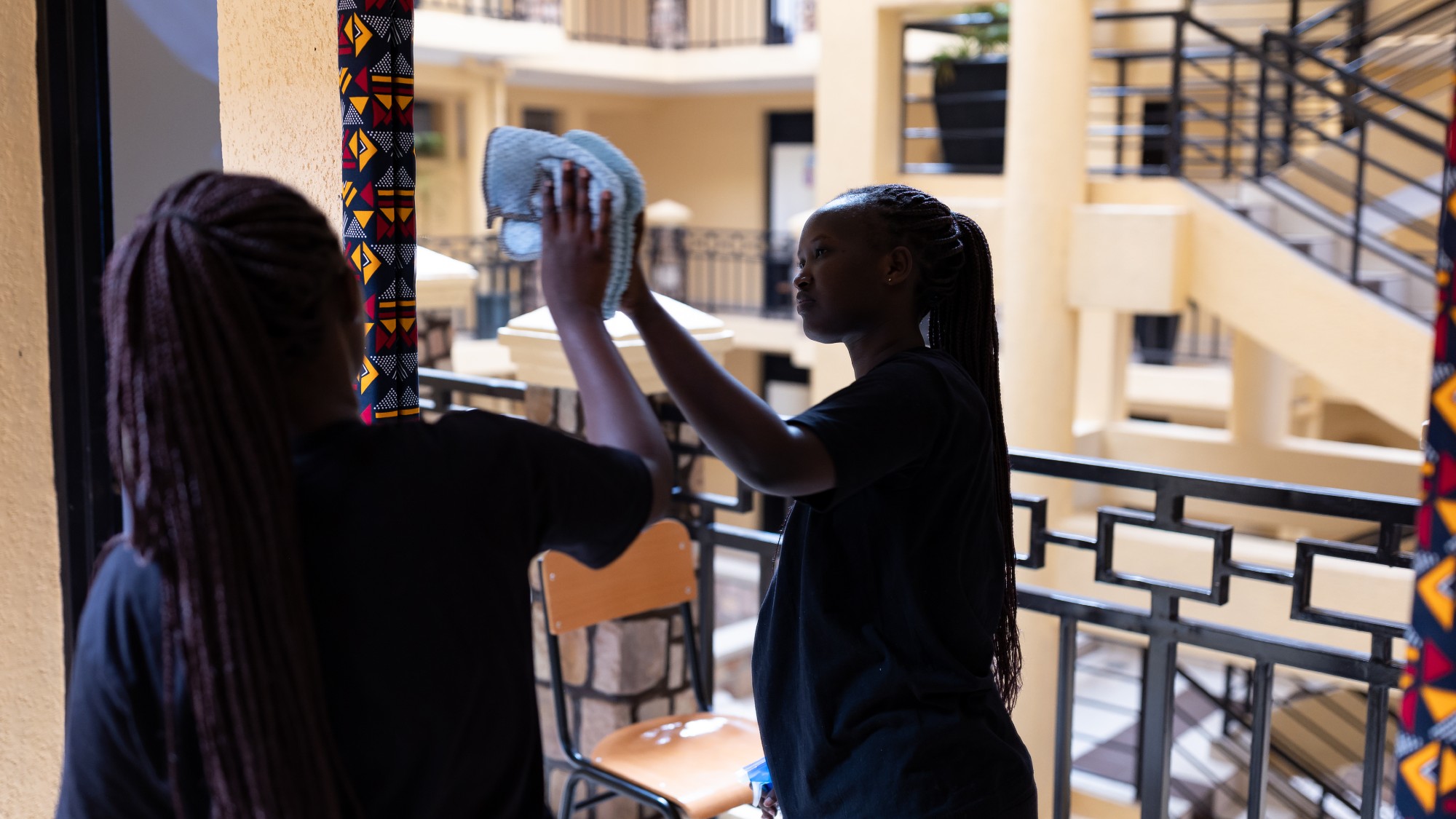Why the UK picked Rwanda to process asylum seekers
Rishi Sunak insists planes will depart for Kigali 'come what may'

A free daily email with the biggest news stories of the day – and the best features from TheWeek.com
You are now subscribed
Your newsletter sign-up was successful
Rishi Sunak's Rwanda Bill has cleared Parliament, paving the way for the first deportation flights to begin by July.
Following eight hours of tortuous debate during which MPs and peers sat through the night, the bill was finally passed after the House of Lords decided not to table any further amendments.
With the bill's passage the first group of migrants will be sent letters within days notifying them of the government's intent to deport them to Rwanda.
The Week
Escape your echo chamber. Get the facts behind the news, plus analysis from multiple perspectives.

Sign up for The Week's Free Newsletters
From our morning news briefing to a weekly Good News Newsletter, get the best of The Week delivered directly to your inbox.
From our morning news briefing to a weekly Good News Newsletter, get the best of The Week delivered directly to your inbox.
Origins of the plan
The deal to process UK asylum claimants in Rwanda was agreed in April 2022 by then-home secretary Priti Patel.
At the time, Labour called it an "unworkable, unethical and extortionate policy" that will make it "harder not easier to get fast and fair asylum decisions", while charities and non-profits representing refugees have also expressed concern about sending asylum seekers abroad.
To some extent, the policy "mirrors the approach taken by Australia, which has one of the strictest and controversial immigration regimes in the world", said Nicole Johnston at Sky News. "Offshore processing of asylum seekers has been the cornerstone of the Australian government's refugee policy for years," she said.
When Patel entered the Home Office in 2019, officials "were told to engage in 'blue-sky thinking'" to combat dangerous Channel crossings, said The Times's Matt Dathan
A free daily email with the biggest news stories of the day – and the best features from TheWeek.com
Various destinations for asylum processing were "dismissed as unviable or rejected by the host country", added Dathan, including Ascension Island in the South Atlantic Ocean, Albania and Ghana, as well as Gibraltar and the Isle of Wight. "But Rwanda was always the most promising country with which to do a deal."
In 2021, Denmark agreed a "memorandum of understanding" with Rwanda which the EU's migration law blog called a possible "precursor to a subsequent transfer agreement", but so far no European nations have transported any asylum seekers to Rwanda.
Rwanda and the UK
The UK's partnership with Rwanda "is the centrepiece of a wider policy blitz" on migration, said the BBC's Mark Easton, but it is "likely to prove hugely controversial and legally fraught". It is expected to focus on single men, rather than women and children.
"Critics point to Rwanda's poor human rights record," he explained, meaning ministers will be expected to justify why it is "the right place to entrust with protecting the human rights of vulnerable asylum seekers who hoped the UK would protect them".
The Daily Mail's Stephen Glover pointed to a 2020 report from Human Rights Watch that found high-profile government critics had been arrested or threatened and that "arbitrary detention, ill-treatment and torture in official and unofficial detention facilities continued".
"Not the sort of place where most of us would choose to end up, or with whose government we should be seeking a close partnership," said Glover.
However, Rwanda has shown that it is "hospitable towards refugees and has experience as a host", said Cristiano d'Orsi, a lecturer in international law at the University of Johannesburg. Rwanda currently hosts more than 135,000 refugees and asylum seekers, the majority from the Democratic Republic of the Congo, and their rights are "protected under various laws", d'Orsi wrote for The Conversation.
"Nevertheless, there are many rights they don't have" and they are "still a long way away from being able to make independent lives for themselves".
Next steps
Following the passage of the Rwanda Bill, planes will now depart for Kigali "come what may", said Sunak, and there will be a "regular rhythm of multiple flights every month" over the summer and beyond.
The bill's passage is a "major coup for Mr Sunak", said The Telegraph, and "in theory a step closer to his objective of stopping the boats".
Yet support for the bill is remarkably low, with almost everyone agreeing the government's Rwanda plan is a "bad idea", said Simon Jenkins in The Guardian. The scheme represents "appalling value for huge sums of public money". Its "trivial" impact on the issue of irregular migration means it can only be seen as "a mere sop to rightwing voters".
The plan will cost £1.8 million for each of the first 300 deportees, the National Audit Office has confirmed.
-
 What to know before filing your own taxes for the first time
What to know before filing your own taxes for the first timethe explainer Tackle this financial milestone with confidence
-
 The biggest box office flops of the 21st century
The biggest box office flops of the 21st centuryin depth Unnecessary remakes and turgid, expensive CGI-fests highlight this list of these most notorious box-office losers
-
 What are the best investments for beginners?
What are the best investments for beginners?The Explainer Stocks and ETFs and bonds, oh my
-
 How corrupt is the UK?
How corrupt is the UK?The Explainer Decline in standards ‘risks becoming a defining feature of our political culture’ as Britain falls to lowest ever score on global index
-
 A running list of everything Donald Trump’s administration, including the president, has said about his health
A running list of everything Donald Trump’s administration, including the president, has said about his healthIn Depth Some in the White House have claimed Trump has near-superhuman abilities
-
 The high street: Britain’s next political battleground?
The high street: Britain’s next political battleground?In the Spotlight Mass closure of shops and influx of organised crime are fuelling voter anger, and offer an opening for Reform UK
-
 A running list of everything Trump has named or renamed after himself
A running list of everything Trump has named or renamed after himselfIn Depth The Kennedy Center is the latest thing to be slapped with Trump’s name
-
 A running list of the international figures Donald Trump has pardoned
A running list of the international figures Donald Trump has pardonedin depth The president has grown bolder in flexing executive clemency powers beyond national borders
-
 A running list of US interventions in Latin America and the Caribbean after World War II
A running list of US interventions in Latin America and the Caribbean after World War IIin depth Nicolás Maduro isn’t the first regional leader to be toppled directly or indirectly by the US
-
 A running list of the US government figures Donald Trump has pardoned
A running list of the US government figures Donald Trump has pardonedin depth Clearing the slate for his favorite elected officials
-
 Is a Reform-Tory pact becoming more likely?
Is a Reform-Tory pact becoming more likely?Today’s Big Question Nigel Farage’s party is ahead in the polls but still falls well short of a Commons majority, while Conservatives are still losing MPs to Reform